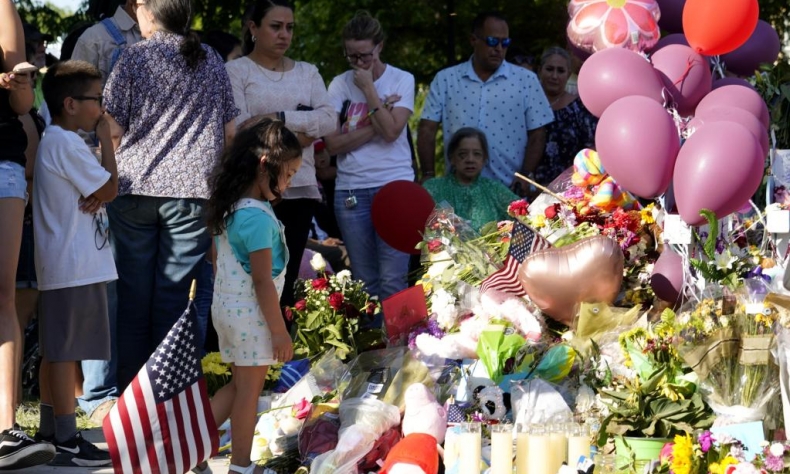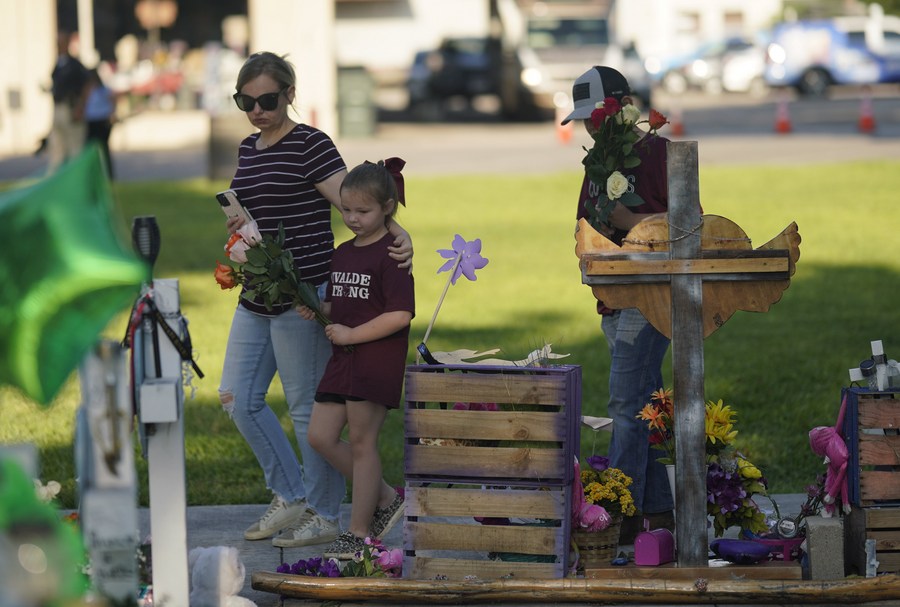Nothing Has Changed a Year After Uvalde

It is a year later, and yet politicians in the U.S. and Texas have done nothing to ease the suffering of the victims or decrease the likelihood of another attack like this happening again.
The shooting at Robb Elementary School in Uvalde, Texas, U.S., happened about a year ago. It encapsulates so much of what is wrong with American politics and society.
There exists a pervasive culture of violence, a lack of regulation that allows criminals and mentally ill people to own guns, a lack of treatment for individuals suffering from psychopathy and schizophrenia, cowardly police officers, and corrupt politicians who refuse to take the initiative or listen to the people.
It is a year later, and yet politicians in the U.S. and Texas have done nothing to ease the suffering of the victims or decrease the likelihood of another attack like this happening again. Texas Gov. Greg Abbott said he would oppose any so-called gun control bill, not even a very minor one that would increase the purchase age for assault rifles from 18 to 21.
It was one of many bills a coalition of parents who lost children, children who survived, and other concerned citizens have advocated for to make people safer. The Texas state assembly will not even vote on the bills. They won’t even debate them. A few lonely representatives have heard them and introduced bills based on their concerns. But of the 22 gun safety bills introduced, only one has even been put on the committee floor.
After waiting 14 hours at the Capitol, Brett Cross, the father of one of those slain, was finally allowed to testify. He said, “Your ‘thoughts and prayers’ haven’t done anything in the 329 days since Uziyah was shot through his stomach and spine.”
Pro-gun Republican committee members sat at their high desks with disinterested looks on their faces. They treat the protesters and witnesses testifying in favor of gun safety, who make up a large constituency of the population, even in a state as conservative as Texas, as the enemy. The bill was eventually approved by the committee and sent to the full legislature, but Republican leadership in the legislature refused to schedule a pass-or-fail vote.
Mass shootings still abound. Just one week after Uvalde, a shooter attacked doctors and patients at a hospital in neighboring Tulsa, Oklahoma. This May, there have been at least two other major mass shootings in Texas, including a neo-Nazi who killed nine people outside of Austin and a man who killed five of his neighbors outside of Houston.

People who are violently mentally ill still do not get treatment and usually are able to buy guns. Mental health treatment in America is as obscenely expensive, as is treatment for physical ailments, even making it a burden for those who recognize they have a problem and seeks help.
But many people who are the most seriously in need of treatment or institutionalization are unaware or unwilling to seek treatment. They remain in society, in some cases posing a threat to themselves and others.
Even those whose mental illness might result in an increased proclivity towards violence are still allowed to purchase guns and carry them anywhere. Only 19 states have any kind of “red flag” law that allows for the firearms purchases of people ruled mentally ill by a court to be reviewed. Even in those states, the laws are rarely enforced.
What can be done? Will anything ever change?
The prospects are dim. Look at how dysfunctional the United States Congress is. The Republicans who control the House of Representatives just wasted months threatening to hold the economy hostage and only passed a bill to raise the debt ceiling at the last minute. However, their bill only included minor spending cuts, so they did it all for nothing.
If Congress can barely get a debt ceiling bill passed, they certainly can’t get a gun safety bill passed. So what should we do?
Washington Post columnist Brian Broome wrote that “with all the mass shootings,” he is staying inside. It’s as if the pandemic never ended or the virus particles floating through the air just changed to bullets. That is surely an overreaction. One meaningless death is one too many, and there are thousands too many in the U.S. every year. No one thinks it’s going to happen to them, and in most cases, it won’t, but Brett Cross didn’t think it would happen to his son, either.
 Facebook
Facebook
 Twitter
Twitter
 Linkedin
Linkedin
 Google +
Google +










